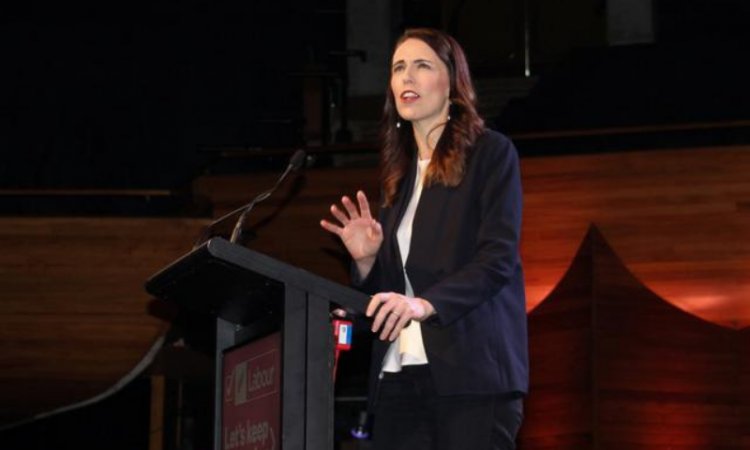New Zealand’s Ardern Mantra To Re-elections

Wellington: Jacinda Ardern turned speaking from the heart and smiling through adversity into a winning formula for a blowout re-election as New Zealand’s leader on Saturday.
Now Ardern, who made a name for herself by crushing COVID-19 in the country and healing the nation after a massacre of Muslims by a white supremacist, faces a challenge to show her leadership extends beyond crisis management and kindness.
Her Labour Party won a landslide victory in the general election, a resounding mandate that ushers in New Zealand’s first purely left-leaning government in decades and may allow her to form a single-party government.
The win is also the reward for Ardern’s leadership through a series of extraordinary events that shaped her first three-year term: the gunman’s massacre of 51 worshippers at two Christchurch mosques and the eruption of the White Island volcano, which killed 21.
“Be strong, be kind,” New Zealand’s youngest prime minister in more than a century repeated through these dramatic events, her empathetic leadership and crisis management skills often masking her government’s shortcomings.
Ardern’s left-leaning government will face a looming economic hangover from COVID-19, a deep plunge in output and surge in debt after her strict lockdowns, a worsening housing crisis and a growing divide between rich and poor.
Despite promising a transformational term in 2017, Ardern’s affordable housing programme was set back by blunders, plans for a capital gains tax that would have addressed the growing rich-poor divide were scrapped, and her government fell woefully short of its goal to reduce child poverty.
Even on climate change, which Ardern called “my generation’s nuclear-free moment”, progress has been incremental.
“I think it’s fair to say they have not achieved what they had hoped to achieve,” said Ganesh Nana, Research Director at Wellington economic think tank BERL. “There are many disappointed with the pace of change.”
Ardern burst onto the global scene in 2017 when she became the world’s youngest female head of government at the age of 37.
She became a global icon in a rise dubbed “Jacinda-mania,” as she campaigned passionately for women’s rights and an end to child poverty and economic inequality in the island nation.
Ardern, raised a Mormon by her mother and police officer father, left the church over its stance on LGBTQ people in the early 2000s and has since described herself as agnostic.
Asked by a television presenter, hours after being appointed Labour leader in 2017, whether she planned to have children, Ardern said it was “totally unacceptable in 2017 to say that women should have to answer that question in the workplace”.
Ardern did in fact have a baby daughter in June 2018, eight months after becoming prime minister - only the second elected leader to give birth while in office, after Pakistan’s Benazir Bhutto.
Many took her pregnancy and maternity leave in office as symbolising progress for women leaders. Within three months of arriving in the world, her daughter Neve Te Aroha was at the U.N. General Assembly in New York with her mother.
Ardern is feted globally as part of a new wave of progressive and young leaders that include France’s Emmanuel Macron and Canada’s Justin Trudeau.















































